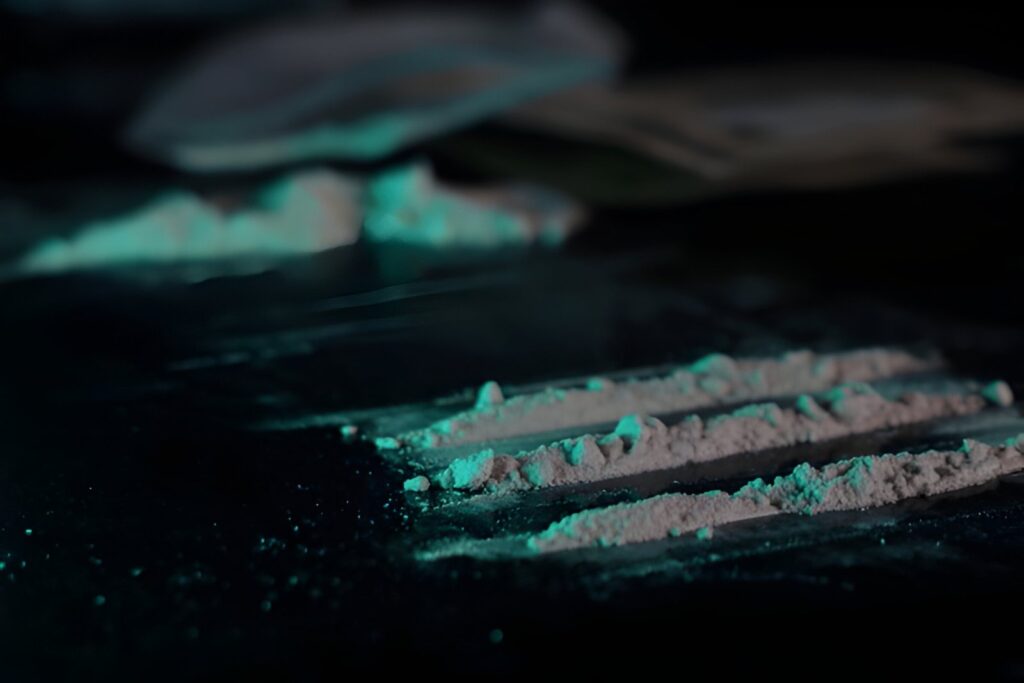- KNOWLEDGE BASE
- EATING DISORDERS
- General Topics
- No posts found for the specified taxonomy and term.
- General Topics
- EATING DISORDERS

SWISS MEDICAL EXPERTISE: ZURICH, MALLORCA, LONDON, MARBELLA


CONDITIONS WE TREAT
PROGRAMS
Intensive residential treatment program starting from 4 weeks. Location: Mallorca, Zurich, London.
Comprehensive second opinion assessments for both psychiatric and general health concerns. Location: Mallorca, Zurich, London
ADDITIONAL INFORMATION





10 Minutes
CONTENTS
Cocaine jaw, commonly known as “coke jaw,” refers to various oral and maxillofacial complications associated with the use of cocaine. This substance profoundly affects the body, particularly due to its potent vasoconstrictive properties, which restrict blood flow to the gums, teeth, and jaw tissues. Over time, these impacts result in major dental and jaw-related issues, including bruxism, severe gum disease, and chronic jaw pain.
The effect of cocaine on oral health is further exacerbated by behaviors usually associated with substance abuse, including inadequate oral hygiene and dehydration. A comprehensive examination of the cocaine jaw is necessary to understand the physiological mechanisms involved, the particular impact on oral structures, and the long-term consequences for individuals who routinely abuse this substance. This article will provide an in-depth analysis of these aspects, assessing the causes, symptoms, and broader effects of cocaine jaw.
Coke’s impact on oral health is multifaceted, affecting various structures within the mouth and jaw, ultimately leading to the coke jaw. Some of these well-recognized effects of coke on oral health include the following:
While the direct cause of coke jaw is the prolonged use of cocaine, several factors impact the severity and this condition, such as the following:
The frequency and duration of cocaine use are essential factors in the onset of coke jaw. Persistent use worsens the impact of cocaine on oral tissues.
The method of administering cocaine is also a crucial factor to consider in determining the extent of damage to the oral cavity.
Poor oral hygiene is among the primary risk factors for coke jaw onset. Individuals using cocaine usually neglect regular dental care, leading to a rapid degradation of oral health.
The use of other substances with cocaine can add to the negative impacts on oral health.
Research shows that diet and nutrition are integral to maintaining oral health[5], and deficiencies can accelerate the development of a coke jaw.
Psychological and behavioral factors that accompany cocaine use can also add to the development of coke jaw.
Recognizing the early symptoms of coke jaw is necessary for timely intervention. Below are the primary signs that show the onset of the condition:
Treating coke jaw requires a comprehensive approach that provides immediate dental care and addresses the underlying contributors to the condition. A treatment plan for cocaine jaw usually includes:
One of the main focuses in treating coke jaw is restoring damaged teeth and gums. Dental restoration may include procedures like:
Professional interventions for gum disease as a result of coke jaw include the following:
For severe cases of coke jaw, where there has been significant bone loss or widespread damage, surgical interventions are necessary:
After treatment, ongoing maintenance sessions are needed to manage coke jaw:
Treatment for cocaine jaw often requires a combination of professional habits and lifestyle changes needed to maintain oral health. Some of the lifestyle changes that can help are:
Enhancing oral care beyond basic brushing and flossing can help manage coke jaw. Integrating the use of fluoride mouth rinses can fortify tooth enamel, giving another layer of protection against decay. Moreover, using a water flosser can be more effective than traditional flossing in removing debris and plaque.
Changing dietary habits for improved oral health can make a big difference. Increasing the intake of calcium and vitamin D foods can support teeth and gum health. Additionally, adding vegetables like carrots and celery can stimulate saliva production, which is necessary for a healthy oral environment.
Reducing exposure to substances that irritate the mouth is beneficial. Spicy foods, alcohol, and hot beverages can worsen the sensitivity of the oral tissues. Switching to milder foods and drinks can help decrease discomfort and prevent irritation, aiding in the management of the coke jaw.
Beyond regular hydration, focusing on techniques to maintain oral moisture can help manage effects of coke jaw like persistent dry mouth. Chewing sugar-free gum or sucking can trigger saliva production and alleviate dry mouth. Using a humidifier at night can also maintain moisture levels in the mouth during sleep/
For individuals experiencing bruxism because of coke jaw, adding stress management techniques tailored to their lifestyle can be beneficial. Practices such as progressive muscle relaxation or guided imagery can relieve muscle tension and reduce the risk of jaw grinding and the pain that comes with it.
Cocaine jaw represents a severe and underestimated effect of cocaine use, with long-term consequences for oral health and general well-being. The condition highlights the immediate physical damage caused by the drug and also shows the broader impact of substance abuse on an individual’s life. Addressing the cocaine jaw requires an extensive approach, combining professional dental interventions with lifestyle changes and,, addressing the underlying addiction. Recognizing the symptoms and getting timely treatment can prevent irreparable damage and improve quality of life. Fundamentally, the condition is a reminder of the serious effects that substance abuse can have on both health and daily functioning, emphasizing the need for rehabilitation and holistic treatment.
Cocaine use causes coke jaw, which is a condition that significantly damages oral health. Cocaine’s vasoconstrictive effects decrease blood flow to the gums, teeth, and jaw tissues, causing gum recession, bone loss, and tooth decay. Moreover, cocaine use also leads to teeth grinding, which adds to the damage by straining the jaw muscles and damaging the teeth.
While a single use of cocaine is unlikely to have severe consequences, it can still cause immediate impacts, including irritation of the gums and dry mouth. If not addressed, these effects can contribute to the onset of oral health problems. Repeated use elevates the chances of developing more severe conditions, including cocaine jaw.
Treating advanced-stage cocaine jaw is difficult and often requires comprehensive dental and surgical processes. While it is possible to manage and improve the condition, complete restoration of oral health may not always be possible, particularly if the individual has widespread destruction of dental structures and loss of bones. Treatments may combine gum and bone grafting with dental implants and periodontal care for the best results. However, the success of these treatments depends on controlling cocaine use and the adoption of necessary lifestyle changes.
The development of the cocaine jaw can vary depending on factors like frequency, technique of drug use, and individual characteristics, including oral hygiene practices. In some cases, noticeable symptoms may appear within a few months of regular use. However, for some individuals, the condition may take longer to develop, with symptoms slowly exacerbating over time
Yes, cocaine jaw can cause more serious health complications if left untreated. The severe gum disease that accompanies the cocaine jaw can allow bacteria to enter the bloodstream, leading to systemic infections, cardiovascular problems, and increased risk of stroke. Also, chronic oral infections can negatively impact the immune system and contribute to other underlying health issues.
COGNIFUL is a leading provider of luxury addiction and mental health treatment for affluent individuals and their families, offering a blend of innovative science and holistic methods with unparalleled individualised care.
We believe in the healing power of a community that brings together collective wisdom and individual insight from collective group sessions and activities. We offer a variety of activities and therapies, from group workshops to communal living experiences, every aspect of our program is designed to foster growth, understanding, and self-improvement.
more infoOur program is uniquely designed to meet your needs, with our team closely monitoring your progress. Our therapists are committed to addressing the underlying causes of your challenges, not just the surface symptoms. This deep, root-level therapy extends beyond your stay with us, ensuring enduring success and well-being.
more infoOur team of specialists integrates the most effective strategies from psychological care and holistic medicine, offering you personalized support. This approach includes a range of complementary therapies, all seamlessly coordinated to work together in a comprehensive, integrative manner for your benefit.
more infoThroughout your stay, our dedicated team will ensure a personalized and nurturing experience, providing continuous support and attention. We are committed to guiding you through every step of this transformative journey.
more infoNestled in a serene location close to the calming embrace of the beach, our luxury residence is designed with healing in mind, featuring private suites that offer an oasis of tranquility. Each suite is crafted to provide a personal sanctuary where individuals can reflect, rejuvenate, and recover in peace.
more infoComplex trauma frequently underlies both mental and physical distress. We offer a secure environment, incorporating integrated trauma treatment techniques to facilitate the healing process.
more info